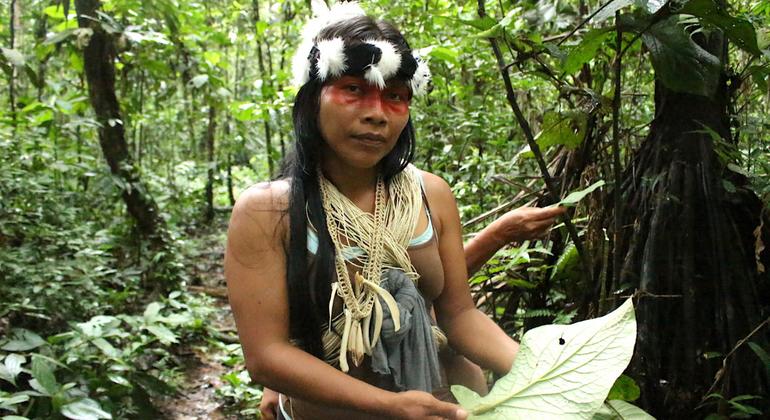In a critical context for indigenous peoples globally, the Secretary-General of the UN, António Guterres, emphasized the importance of these groups in the fight against climate change, pollution, and biodiversity loss. During the opening of the 24th session of the United Nations Permanent Forum on Indigenous Issues, Guterres highlighted that these peoples are the most affected by these crises, despite not being responsible for their origins.
The meeting, which will run until May 2, brings together about a thousand participants and is dedicated to discussing the multiple challenges facing indigenous communities. In his speech, Guterres emphasized the marginalization, discrimination, poverty, unemployment, and violence suffered by these communities, especially when trying to protect their natural environments. He pointed out that they face evictions and the exploitation of their lands, often without their consent, which constitutes a violation of their fundamental rights. “They are excluded from decisions that directly affect their lands and territories, threatening their ways of life and food security,” he said.
One of the most concerning issues mentioned by Guterres was the illegal extraction of minerals, a practice that not only breaks the law but also inflicts serious harm on indigenous communities that depend on these lands. The growing demand for minerals, driven by the global energy transition, is intensifying the dispossession and marginalization of these peoples, whose rights continue to be ignored, exposing them to threats to their health and well-being.
Mercury pollution, a byproduct of illegal mining, was cited as a devastating example of the negative impact that these activities have on indigenous communities, poisoning their sources of water and food. Despite adversities, indigenous peoples are recognized in UN agreements and actively participate in discussions on critical minerals.
Guterres outlined four areas that require urgent attention: strengthening the Permanent Forum, recognizing indigenous leadership and rights by States, increasing financing for these communities, and fully implementing recommendations on critical minerals.
Finally, the Secretary-General highlighted the importance of the traditional knowledge and practices of indigenous peoples, considering them models of conservation and sustainable use. He insisted that the world has much to learn from these communities, which prioritize the health of ecosystems over immediate economic benefits, promoting a harmonious relationship with nature and the well-being of future generations.
Referrer: MiMub in Spanish
